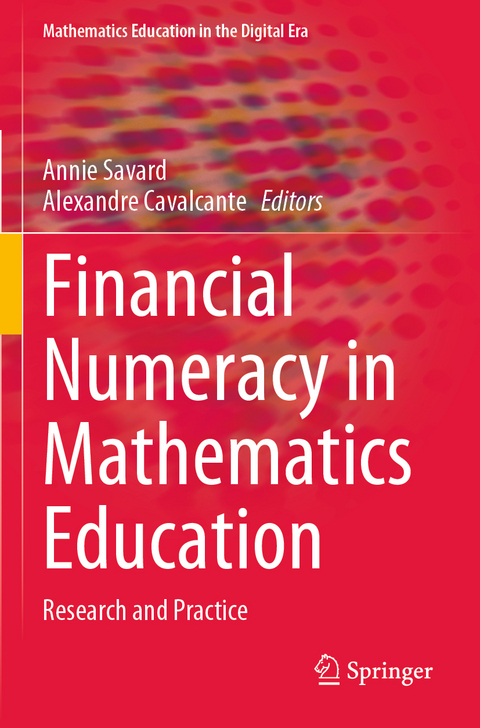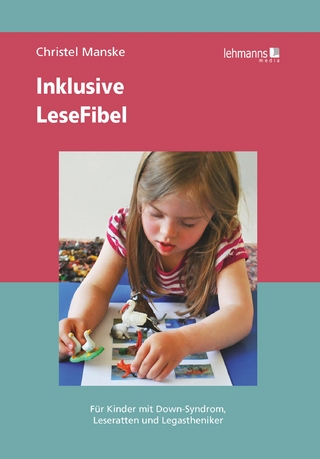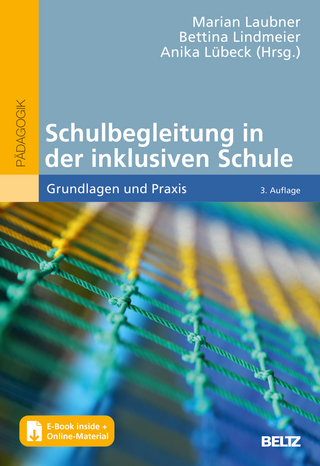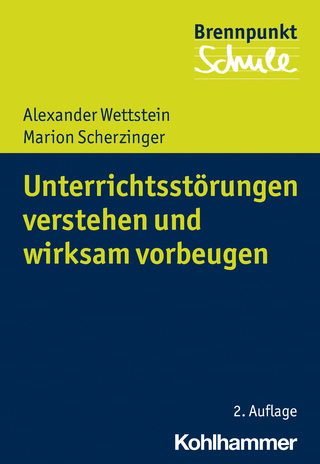
Financial Numeracy in Mathematics Education
Springer International Publishing (Verlag)
978-3-030-73590-6 (ISBN)
The book appeals to an international audience composed of researchers, stakeholders, policymakers, teachers, and teacher educators.
lt;p>Annie Savard is an associate professor at McGill University in the Department of Integrated Studies in Education (DISE). Her research program focuses on the contribution of mathematical competencies to the development of citizenship competencies such as decision-making or critical thinking in regard to financial education. She is also interested by the professional development of teachers, which brought her to work with different communities of teachers, from Nunavik in Canada, to Romania and several African countries such as Côte D'Ivoire, DCR, Djibouti, Mali, and Rwanda.
Alexandre Cavalcante is an assistant professor of Mathematics Education in the Department of Curriculum, Teaching, and Learning at OISE, University of Toronto. His research is centered around numeracy education and how it can respond to the demands of a society in transition. He has worked in the field of mathematics and science teacher education with different researchers, governments, and organizations in Brazil, China, Romania, and South Korea. Alexandre's research interests include financial literacy and numeracy, ethnomathematics, critical mathematics education, informal numeracy practices, entrepreneurship, and citizenship.
Section 1: Theoretical perspectives Introduction: Financial Education in the Digital Era (Annie & Alex).- Chapter 1. Financial Education and Mathematics from an epistemological point of view.- Chapter 2. Financial Education in the Mathematics curricula: Financial knowledge when teaching Mathematics.- Section 2: Research perspectives - a study on Secondary Mathematics teachers' needs.- Chapter 3. Background of the project (including how we collected the data).- Chapter 4. Building an instrument for research in Financial Education in schools (Quebec and Romania).- Chapter 5. Using tasks to elicit mathematics teachers' thinking in Financial Education.- Chapter 6. Mathematics Teachers' representations of Financial Education.- Chapter 7. Making sense of mathematics: students questioning financial contexts when learning Mathematics.- Section 3: Financial Education and Mathematics: practice perspectives in K-12.- Chapter 8. Some situations to implement Financial Education in Mathematics classrooms.- Chapter 9. Training mathematics teachers to incorporate Financial Education.- Chapter 10. Mathematics teachers' needs in Financial Education: Implications for leadership.- Chapter 11. Ethical considerations on doing research on Financial Education in the Digital Era.- Chapter 12. Financial Education as an emerging field in Education: looking to the future.
"This could also be used as a supplementary book for a graduate-level mathematics education student studying financial numeracy." (Blain Patterson, MAA Reviews, December 12, 2021)
“This could also be used as a supplementary book for a graduate-level mathematics education student studying financial numeracy.” (Blain Patterson, MAA Reviews, December 12, 2021)
| Erscheinungsdatum | 31.08.2022 |
|---|---|
| Reihe/Serie | Mathematics Education in the Digital Era |
| Zusatzinfo | XV, 108 p. 16 illus., 7 illus. in color. |
| Verlagsort | Cham |
| Sprache | englisch |
| Maße | 155 x 235 mm |
| Gewicht | 199 g |
| Themenwelt | Sozialwissenschaften ► Pädagogik ► Schulpädagogik / Grundschule |
| Schlagworte | Financial Education • Financial education in mathematics classes • Financial education in mathematics classes • Financial education in the digital era • Financial education in the Mathematics curricula: • Financial education K-12 • Financial K-12 curriculum • Financial Mathematics • Implement financial education in mathematics classrooms • mathematics education • Mathematics education in the digital era • Teaching and learning of mathematics and finance • Teaching Mathematics for financial education |
| ISBN-10 | 3-030-73590-7 / 3030735907 |
| ISBN-13 | 978-3-030-73590-6 / 9783030735906 |
| Zustand | Neuware |
| Haben Sie eine Frage zum Produkt? |
aus dem Bereich


